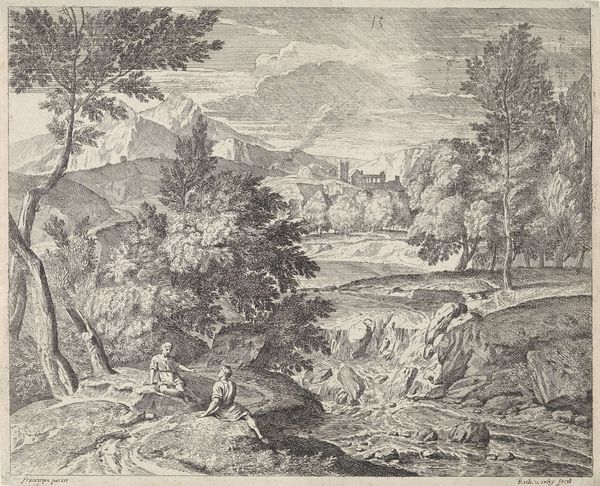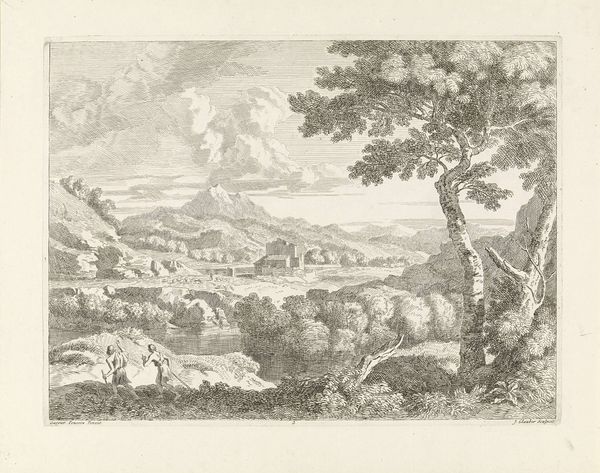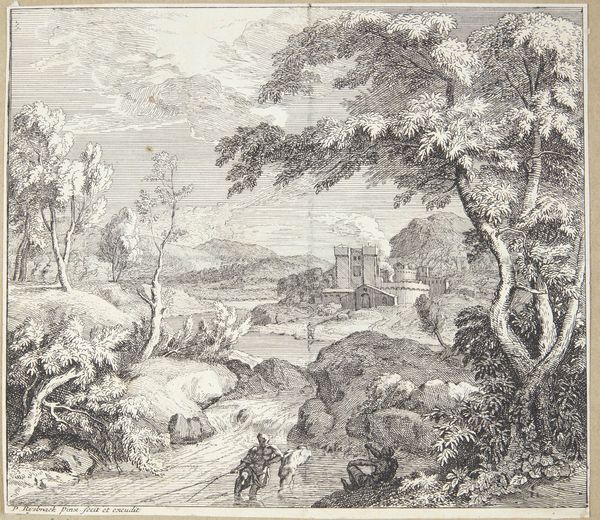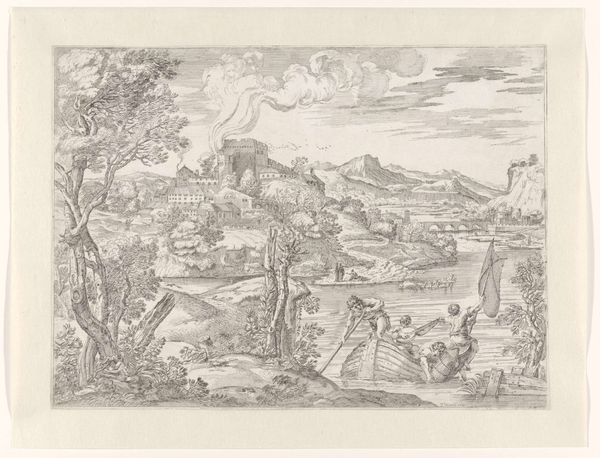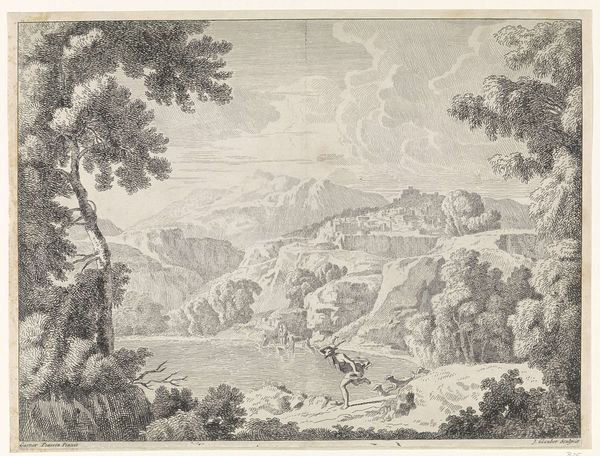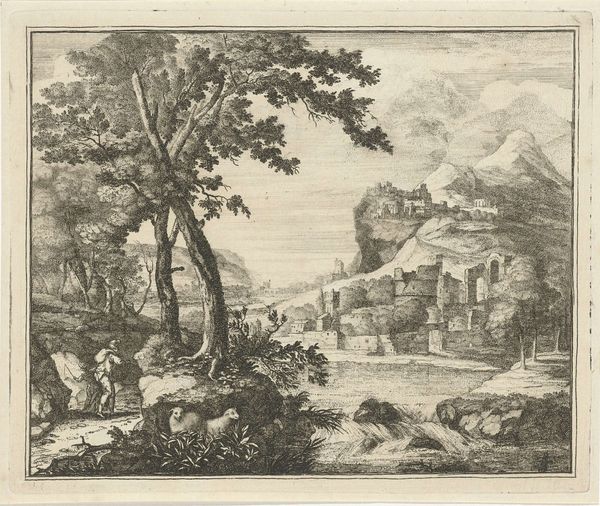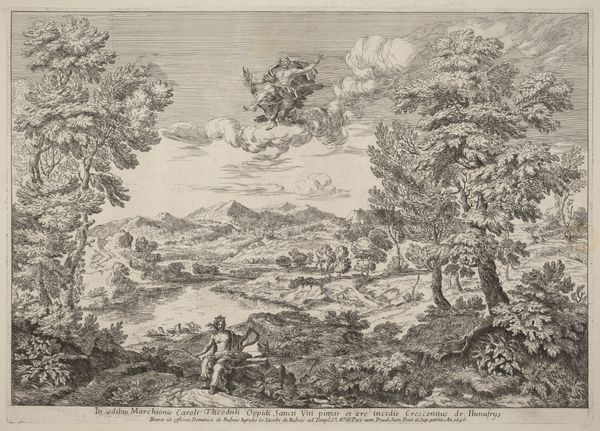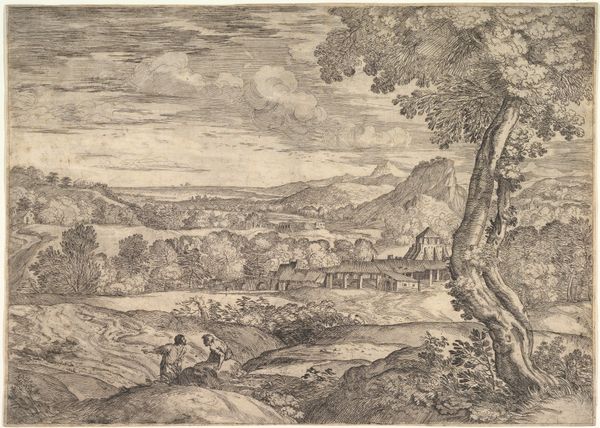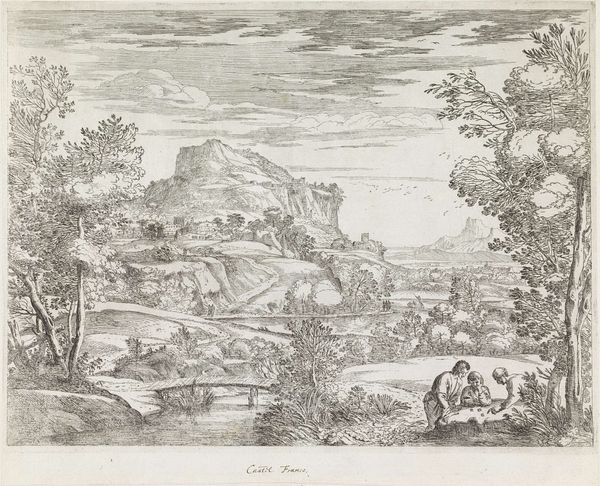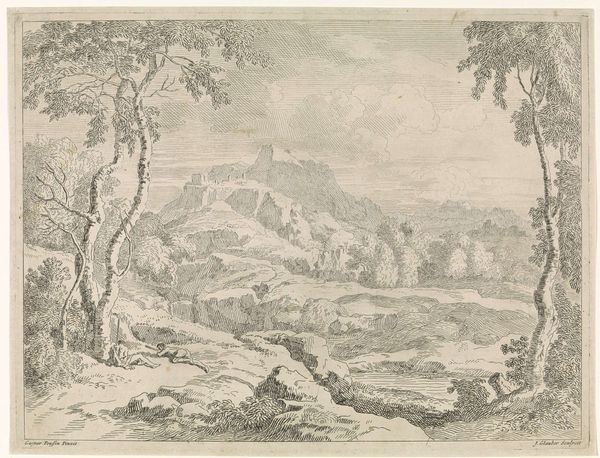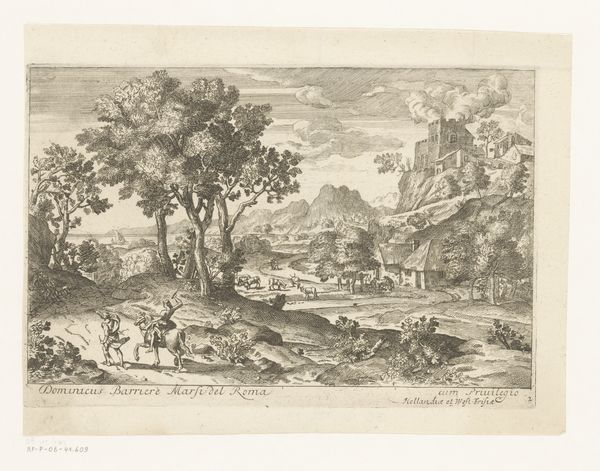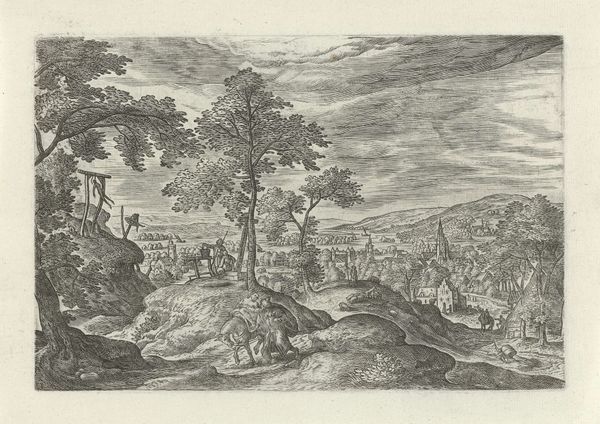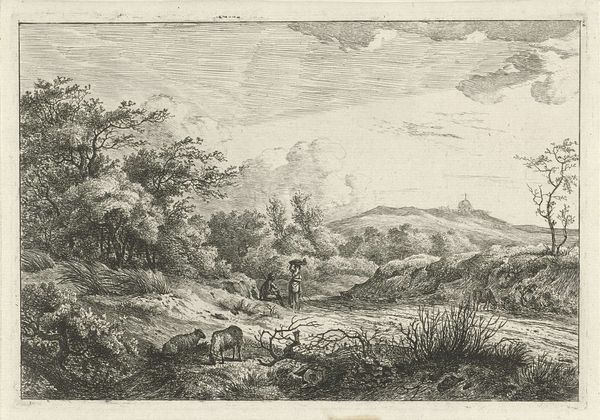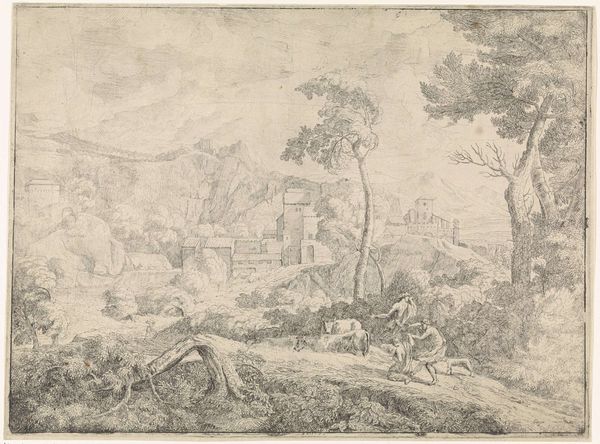
etching
#
baroque
#
etching
#
landscape
#
line
#
genre-painting
#
watercolor
Dimensions: height 292 mm, width 394 mm
Copyright: Rijks Museum: Open Domain
Johannes Gottlieb Glauber made this etching, *Three Shepherds in a Storm*, sometime between 1656 and 1703. Look closely and you’ll see how the artist used the simple technology of metal plate etching to create a vivid scene. With an etching needle, he would have scratched an image into a wax-coated metal plate. The plate was then submerged in acid, which bit into the exposed lines. After the plate was cleaned and inked, it could be run through a printing press, leaving the image on the paper. The result is this delicate landscape, where line becomes shadow, and where the etching process mirrors the fleeting drama of the scene: shepherds struggling against the elements. The seemingly infinite gradations of tone show how an artist can use a relatively simple mode of production to capture a complex, and even sublime, world of experience. It reminds us that the distinction between high art and craft is artificial. Both depend on skilled making.
Comments
No comments
Be the first to comment and join the conversation on the ultimate creative platform.
